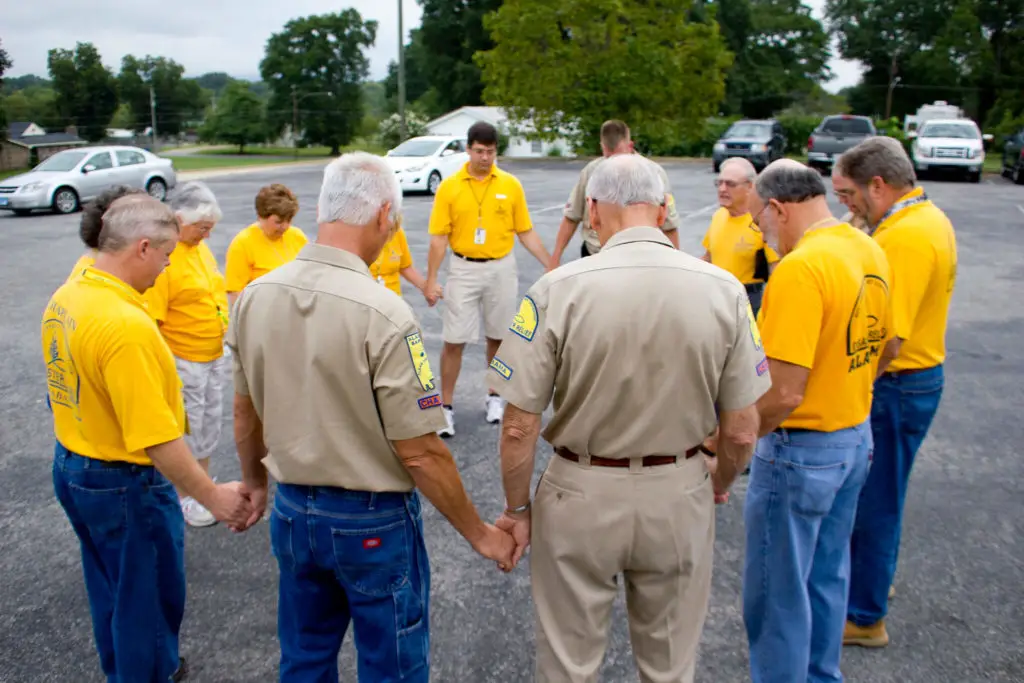Months have passed since April 27, the day Alabama was hit with an unbelievable impact of devastation as a result of 61 tornadoes. These storms raged across our state with a force that even today few people can describe in adequate terms. History will record this as a disaster to remember.
Perhaps now is a good time for us to think about some observations or lessons to be learned from this horrendous experience of death and destruction. For several weeks, I have been musing over this topic with some hesitation.
My reluctance is born out of a genuine feeling of empathy for those who have been suffering and continue to do so to this very day. I certainly do not want to appear to be using this terrible experience as some case study to analyze to death.
Yet we have to learn from experience and, in that spirit, I offer these observations, knowing I am not an authority on the matter. Additionally, I realize I will not be offering an exhaustive kind of evaluation. Others are far better than I at doing such analysis. In fact, leaders at the State Board of Missions are busy doing just that right now.
My initial observation is that no one could have imagined how bad things were going to be across our state on April 27. In our state’s history, we have few episodes which come near this level of disaster. The tornado which leveled Brent in 1973 was a bad enough, but several towns and cities received this kind of devastation on April 27. The outbreak of tornadoes in 1974 comes closer to this experience, but again it doesn’t equal what happened to Alabama on April 27. The west Jefferson tornado in 1998 was a big one, but there were several of this type storms to hit the state in a 24-hour period.
Again, no one could have imagined the magnitude of this combination of storms. Some areas were hit twice in the same day. This is unimaginable, and it’s therefore difficult to make suitable preparations for response. A hurricane offers some lead time in placing assets in position to respond. More than 60 tornadoes in one day does not offer that luxury.
A second observation I have to make relates to the quality of spirit generally demonstrated by Alabamians after the storms struck and left the much of the state in rubble and ruin. Neighbors helped neighbors get by until relief came their way. Relief and recovery first responders testified to that fact over and over again.
Churches became relief centers for their communities. Even those congregations damaged by the storms turned their buildings into food service and emergency need centers. The images I have of this kind of ministry are still indelibly impressed upon my mind.
Our trained disaster relief workers were assigned to various locations across the state. Some of them left their damaged homes to go assist others considered to be in worse condition. Twelve other state conventions were called into service doing numerous relief work assignments, which are so basic to the needs of the people in the impacted areas. I was proud of the myriad of yellow shirts that covered our state. Southern Baptists, through state conventions and associations, work well in this arena. We represent a team of trained people which constitute the third largest disaster relief force in the world.
Untrained and uncredentialed workers did amazing work as well. This disaster was so big and the impacted area so large that people from all walks of life became Good Samaritans during the early days of the cleanup and recovery efforts. These folks are unsung heroes as well.
Directors of missions, disaster relief coordinators in associations and numerous pastors became strategic leaders during this time of need. During the past few weeks, we have had regional disaster debriefings with many of these DOMs and other leaders. This has been most helpful in evaluating the situation and going forward in recovery and rebuild.
Another salient observation is that, during a time of disaster, we all need to exemplify patience and perseverance. When a disaster strikes, patience with others, yourself and the situation is sorely needed. A disaster is disruptive, and it takes time to regain equilibrium. This is where perseverance comes into play. For all of us, a disaster is a call for looking down the road at the long haul. Patience in the initial stages and perseverance for continual efforts are an important combination.
Recently, off the cuff, I made the statement, “Christian ministry is not about perfection. We cannot do things perfectly. However, it is about compassion.” Paul said, “The love of Christ compels us.” During the months since our Katrina took place, I have reminded myself of this verse, which offers us our motivation. We are called and compelled to serve because He loves us, and He loves through us.
We are now entering hurricane season. I must admit, I am holding my breath and hoping for the best. Yet, whatever comes our way, completely prepared or not, Alabama Baptists will do their part and then some. Second-mile Christianity is second nature to this faith family.


